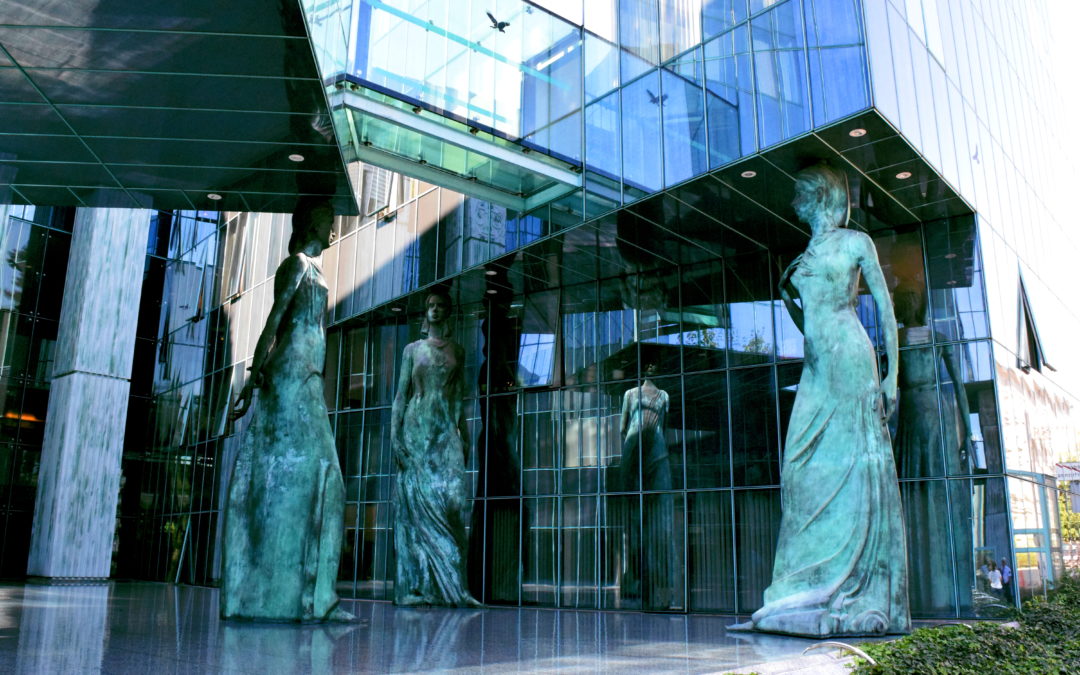President Andrzej Duda has appointed Małgorzata Manowska for a six-year term as the new head of Poland’s Supreme Court. The decision has aroused controversy, as Manowska, who has previously worked under the current justice minister, was picked ahead of another candidate who received twice as many nominations from among other judges.
On Saturday the general assembly of the Supreme Court concluded protracted and contentious discussions over nominating candidates to replace the outgoing chief justice, Małgorzata Gersdorf, who regularly clashed with the ruling Law and Justice (PiS) party over its judicial overhaul.
The general assembly voted to nominate five candidates, from whom the president of Poland, Andrzej Duda, was to select a new head of the court. The candidate to receive a majority of votes from his fellow judges was Włodzimierz Wróbel, who obtained 50 of the 95 nominations. However, Duda has instead chosen Manowska, who received 25 votes from her colleagues.
Supreme Court judges have chosen 5 nominees from among whom President Duda will pick the new chief justice.
In the past, only 2 candidates were nominated. But PiS changed it to 5, meaning that the president could now pick a candidate who received the votes of only two judges https://t.co/dC83MED9w1
— Daniel Tilles (@danieltilles1) May 23, 2020
The selection of the nominees has attracted some controversy, with the candidates being proposed to Duda by the interim court president, rather than through the customary resolution of the general assembly.
Borys Budka, leader of the main opposition party, Civic Platform (PO), argued yesterday that Wróbel was “the only” legitimate candidate for chief justice, and that picking any other would be a “breach of the constitution” by Duda, reports Interia.
However, Paweł Mucha, the deputy head of the president’s chancellery, rejected Budka’s claims as “unacceptable and untrue”, saying that it was the president’s prerogative to pick whichever candidate he wants from among the five nominees.
Manowska has been a judge in the civil chamber of the Supreme Court since 2018. She is one of the “new” judges appointed to the court after PiS’s judicial reforms. Their legitimacy has been questioned due to the fact they were nominated by the reformed National Council of the Judiciary (KRS), which the Supreme Court itself ruled in December 2019 is no longer “an impartial and independent body”.
Pursuant to that ruling, the Supreme Court issued a further resolution in January declaring that all judges nominated by the KRS after its reformation in 2018, including those appointed to the Supreme Court, are illegitimate and should no longer be permitted to adjudicate.
Manowska is also a former colleague of the justice minister and chief prosecutor, Zbigniew Ziobro, whom she served as a deputy minister in the justice ministry in 2007 and as director of the National School of Judiciary and Public Prosecution (KSSiP) since 2016. During her time at the justice ministry, one of her colleagues was Duda, who was also serving as a deputy minister.
During the candidates’ hearings in the Supreme Court, Manowska admitted to having “contact with politicians” during her time at the ministry, but added that she has since “returned to adjudicating and has not since spoken about politics in the media,” reports Gazeta Wyborcza.
“People are not horses,” said Manowska. “We should not be looking at which stable they come from. It is their legal record that counts.”
Manowska currently remains director of KSSP, but has said she will soon quit. She is also a law professor at Łazarski University, a private institution in Warsaw.
Due to the coronavirus outbreak, the general assembly, which is customarily called by the outgoing first president, had been postponed a number of times by Gersdorf. As a result, Duda appointed an interim first president, Kamil Zaradkiewicz, to oversee the process after Gersdorf’s departure at the end of April.
The interim head oversaw three sessions of the assembly between 8 and 12 May, but when insufficient progress was made towards the final selection of nominees, and facing accusations of breaching procedures, Zaradkiewicz abruptly resigned on 14 May, citing “bullying” by other judges. Duda then appointed a second acting president, Aleksander Stępkowski, who saw the process to an end on Saturday.
The tensions over picking a new chief justice resulted in large part from conflict between judges appointed before the government’s judicial overhaul in 2018 and those appointed since. Out of the court’s 99 judges, 97 took part in the assembly sessions: 55 had been picked before the changes, while 42 were nominated under the new order.
On Monday, Duda also nominated Michał Laskowski, a Supreme Court judge and spokesman vocally opposed to the government’s judicial overhaul, to head the criminal chamber, in what is seen as a gesture of goodwill, according to Rzeczpospolita.
Laskowski, however, has described the president’s nomination as an attempt to “paste over” the rift in the court and said that he needs to consider whether he will accept, reports Onet. Speaking about Manowska’s nomination, he said that he “knows her resume, and from that perspective she was a clear choice,” and that aside from any political affiliations, “he hopes her way of directing the court will be good,” reports Gazeta Wyborcza.
Main image credits: rchappo2002/Flickr (under CC BY-NC-ND 2.0)

Maria Wilczek is deputy editor of Notes from Poland. She is a regular writer for The Times, The Economist and Al Jazeera English, and has also featured in Foreign Policy, Politico Europe, The Spectator and Gazeta Wyborcza.




















